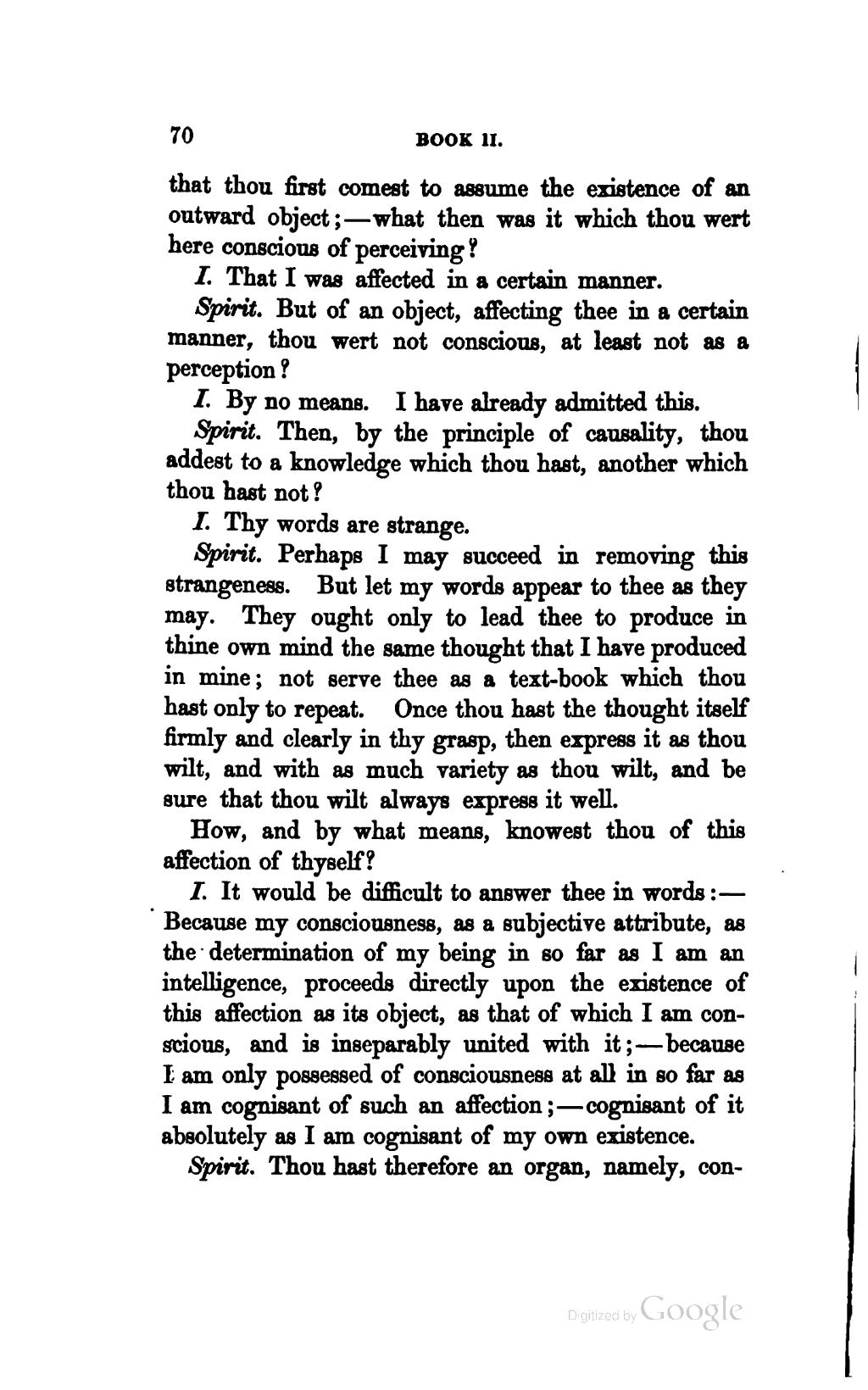that thou first comest to assume the existence of an outward object;—what then was it which thou wert here conscious of perceiving?
I. That I was affected in a certain manner.
Spirit. But of an object, affecting thee in a certain manner, thou wert not conscious, at least not as a perception?
I. By no means. I have already admitted this.
Spirit. Then, by the principle of causality, thou addest to a knowledge which thou hast, another which thou hast not?
I. Thy words are strange.
Spirit. Perhaps I may succeed in removing this strangeness. But let my words appear to thee as they may. They ought only to lead thee to produce in thine own mind the same thought that I have produced in mine; not serve thee as a text-book which thou hast only to repeat. Once thou hast the thought itself firmly and clearly in thy grasp, then express it as thou wilt, and with as much variety as thou wilt, and be sure that thou wilt always express it well.
How, and by what means, knowest thou of this affection of thyself?
I. It would be difficult to answer thee in words:—Because my consciousness, as a subjective attribute, as the determination of my being in so far as I am an intelligence, proceeds directly upon the existence of this affection as its object, as that of which I am conscious, and is inseparably united with it;—because I am only possessed of consciousness at all in so far as I am cognisant of such an affection;—cognisant of it absolutely as I am cognisant of my own existence.
Spirit. Thou hast therefore an organ, namely, con-
